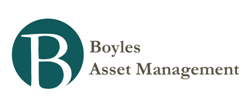Does Inequality Make Us Unhappy? - By Jonah Lehrer
Found via Simoleon Sense.
Inequality is inevitable; life is a bell curve. Such are the brute facts of biology, which can only evolve because some living things are better at reproducing than others. But not all inequality is created equal. In recent years, it’s become clear that many kinds of wealth disparity are perfectly acceptable — capitalism could not exist otherwise — while alternate forms make us unhappy and angry.
The bad news is that American society seems to be developing the wrong kind of inequality.
…..
A similar lesson emerges from a classic experiment conducted by Franz de Waals and Sarah Brosnan. The primatologists trained brown capuchin monkeys to give them pebbles in exchange for cucumbers. Almost overnight, a capuchin economy developed, with hungry monkeys harvesting small stones. But the marketplace was disrupted when the scientists got mischievous: instead of giving every monkey a cucumber in exchange for pebbles, they started giving some monkeys a tasty grape instead. (Monkeys prefer grapes to cucumbers.) After witnessing this injustice, the monkeys earning cucumbers went on strike. Some started throwing their cucumbers at the scientists; the vast majority just stopped collecting pebbles. The capuchin economy ground to a halt. The monkeys were willing to forfeit cheap food simply to register their anger at the arbitrary pay scale.
This labor unrest among monkeys illuminates our innate sense of fairness. It’s not that the primates demanded equality — some capuchins collected many more pebbles than others, and that never created a problem — it’s that they couldn’t stand when the inequality was a result of injustice. Humans act the same way. When the rich do something to deserve their riches, nobody complains; that’s just the meritocracy at work. But when those at the bottom don’t understand the unequal distribution of wealth — when it seems as if the winners are getting rewarded for no reason — they get furious. They doubt the integrity of the system and become more sensitive to perceived inequities. They start camping out in parks. They reject the very premise of the game.
………………..
Related previous posts:
Fault Lines: The Top 1%
TED Talk - Richard Wilkinson: How economic inequality harms societies
Capital versus Talent: Discussion between Malcolm Gladwell and Roger Martin
How Inequality Fueled the Crisis - By Raghuram Rajan
Amy Chua: World on Fire
Sort of related post that was one of the more interesting things I’ve read in quite a while:
A Natural History of Peace - By Robert M. Sapolsky
- Inequality 101: The Picket Fence And The Staircase - By John Cassidy
Found via The Big Picture. When a group of millionaires appear onstage with a Democratic President to call for higher taxes on people like them, you know one of two things: either the President is in Hollywood, or something interesting is happening in...
- Cbo Report: Trends In The Distribution Of Household Income Between 1979 And 2007
From 1979 to 2007, real (inflation-adjusted) average household income, measured after government transfers and federal taxes, grew by 62 percent. During that period, the evolution of the nation’s economy and the tax and spending policies of the federal...
- A Natural History Of Peace - By Robert M. Sapolsky
The evolutionary biologist Theodosius Dobzhansky once said, “All species are unique, but humans are uniquest.” Humans have long taken pride in their specialness. But the study of other primates is rendering the concept of such human exceptionalism...
- Fault Lines: The Top 1%
Found via Simoleon Sense. Link ……………….. Related previous posts: TED Talk - Richard Wilkinson: How economic inequality harms societies Capital versus Talent: Discussion between Malcolm Gladwell and Roger Martin How Inequality Fueled the Crisis...
- Capital Versus Talent: Discussion Between Malcolm Gladwell And Roger Martin
From January of this year. Thanks to Will for passing this along. Link to video: Capital versus Talent .................... Related previous post: TED Talk - Richard Wilkinson: How economic inequality harms societies Related book (recommended by Gladwell):...

